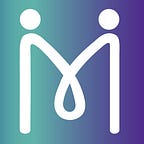Female entrepreneurship in Bolivia
Gender inequality refers to the different treatment men and women receive because of their gender identity, and it is present in almost every societal aspect. In politics, according to an OECD study[i], only 32% of the worldwide parliament’ seats are occupied by women. Regarding poverty rates, women between 25 and 34 are 25% more vulnerable than men to live in extreme poverty. When talking about wages, women are paid 84% of the equivalent of what a man receives[ii]. In education, looking at global statistics, 1 in 4 girls between 15 and 19 years old are neither in employment, education nor training, compared to 1 in 10 boys[iii]. All these inequalities represent a significant threat to women. Lower education attainments tend to be implied as higher fertility and unwanted pregnancy rates, more influence on traditional cultural values, greater gender discrimination and gender-based violence, and high levels of unemployment.
In 2019, the World Economic Forum (WEF) stated the need for 100 years to close the gender gap, and more specifically, 257 years for reaching parity in the economic participation and opportunity area[iv]. However, the pandemic has worsened the situation, and by 2021 the WEF predicted an increase of 11 years to reach gender equality in economic participation[v]. Bolivia is not the exception, cultural gender roles limit women’s access to work. Generally, we talk about part-time jobs in the informal sector with no insurance coverage or protection under labor legislation; 7 out of every 10 women do not have access to a decent and stable job[vi]. A reason behind this phenomenon has to do with the unequal distribution of domestic and care work. Women spend four times more hours than men on care which harms their education, employment conditions, social security, and quality of life, making 44% of women workers to be self-employed [vi].
Given the existing conditions, women are more vulnerable to crisis periods. 84% of the ventures lead by women are small, belong to the informal sector and have less than 5 workers [vi]. Female entrepreneurs suffered from the effects of the pandemic mostly because their production processes are not adjusted to operate remotely or automated, and teleworking is not an option. Teaching them the required technical resources and reinforcing their abilities is a crucial step to ensure the survival of their businesses and most important their economic autonomy. Economic autonomy is a fundamental pillar of women’s autonomy and, by definition, requires that women earn an income that allows them to overcome poverty and have free use of their time to learn, access the labor market, develop professionally and personally, participate actively in social and political life, and spend time with their loved ones without it becoming a barrier to the achievement of their own aspirations.
With this idea on mind and the will to help women in Bolivia to reach economic autonomy is that Munay was born. A digital community for female entrepreneurs that offers them visibility through the creation of their venture profile, funding through a crowdfunding tool based on reputational rewards, and knowledge through individual mentorships with volunteer specialists in different areas in which women need support.
Munay’s first initiative was the launch of the contest “Soy una emprendedora Munay”, which ran from November 15 to December 17, 2021. During the application period, we received 167 proposals of which 15 made it to the next round and had the opportunity to present their projects and crowdfunding campaigns to a national and international jury. After an arduous qualification, five entrepreneurs were selected to go live with their campaigns and raise the necessary funds to continue with their ventures.
Based on the 167 applications received, it is possible to infer the following characteristics and needs of female entrepreneurs in Bolivia:
1. Most female entrepreneurs are in the range of 25 to 40 years old (68% of the participants).
2. The main financial resource used to start their ventures are their personal savings (79% of the participants).
3. The most targeted SDGs by female entrepreneurs are SDG 12: Responsible production and consumption and SDG 8: Decent work and economic growth.
4. The most targeted sectors are food and beverages, art and culture, and beauty and personal care.
5. Female entrepreneurs have a great interest on selling their products online (98% of the participants).
6. The areas in which female entrepreneurs need more support are digital marketing, sales strategies, and financial planning.
Based on all these findings, Munay is adjusting its services to offer female entrepreneurs the right tools, both financial and technical, to make their ventures succeed and contribute to the closure of the gender gap and the empowerment of women. If you want to see the complete report click here.
[i] OECD. (2021). Government at a Glance 2021.
[ii] UN WOMEN. (2020). Gender Equality: Women’s rights in review 25 years after Beijing.
[iii] UNICEF. (n.d.). Gender equality.
[iv] WEF. (2020). Global Gender Gap Report 2020.
[v] WEF. (2021). Global Gender Gap Report 2021.
[vi] UN WOMEN. (2020). Análisis del impacto COVID 19 sobre las mujeres trabajadoras en Bolivia.
